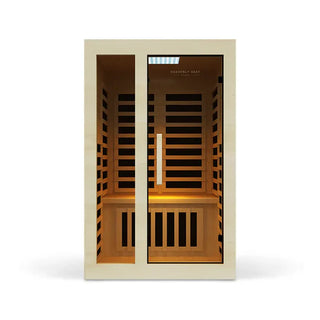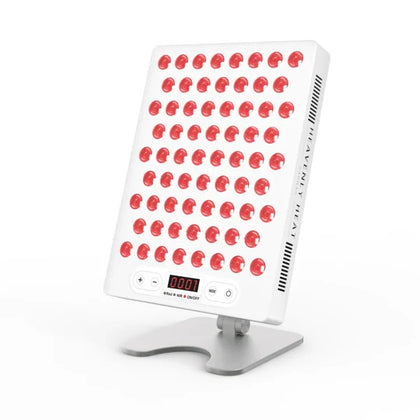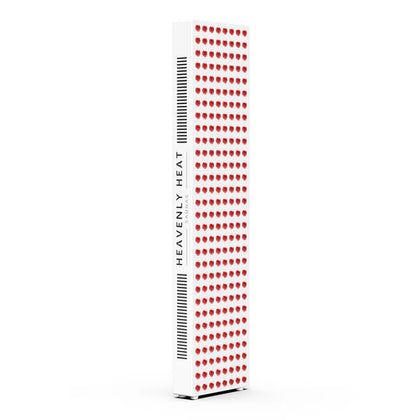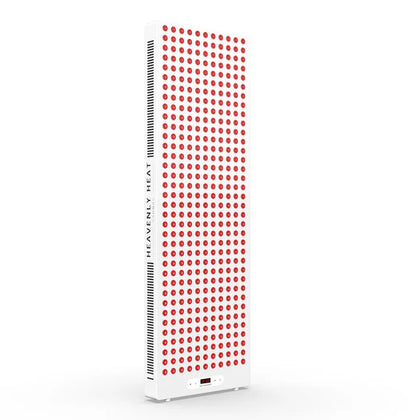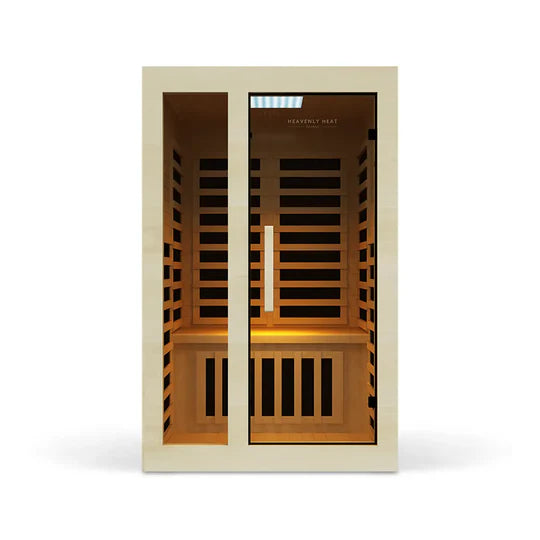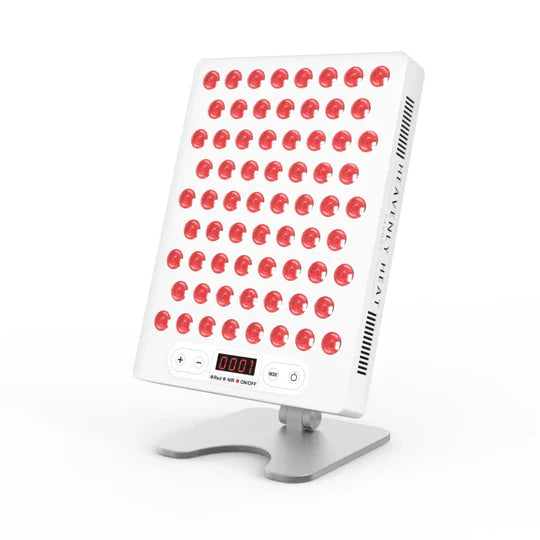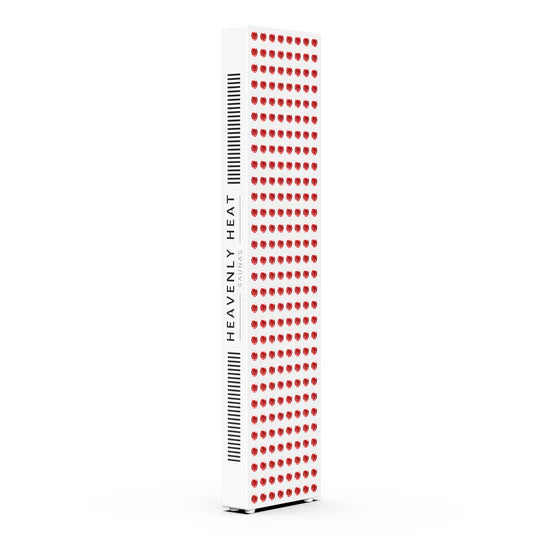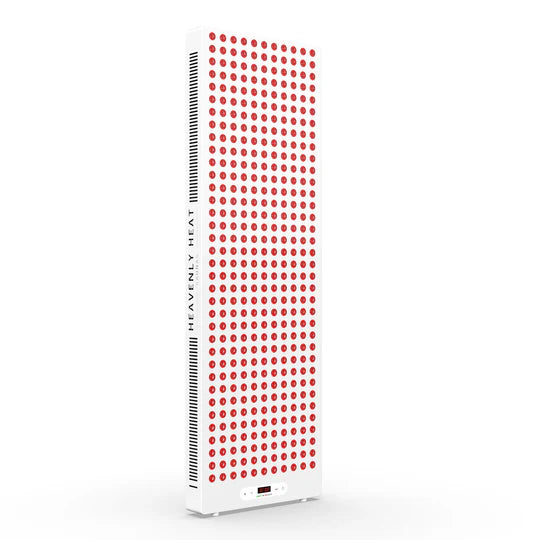How Much Water Should You Drink After a Sauna?

You just stepped out of a relaxing sauna session, feeling refreshed, but then dizziness hits.
Your head throbs, your mouth feels dry, and suddenly, that post-sauna glow is gone.
Dehydration sneaks up fast, draining energy and causing headaches, fatigue, and even muscle cramps.
Ignoring it can ruin your recovery. But how much water is enough? Let’s break it down.
Table of contents
Key Takeaways
Replenish lost fluids after a sauna by drinking 500ml to 1 liter of water.
Watch for dehydration signs like dizziness, dark urine, and muscle cramps.
Electrolytes help restore balance, so consider coconut water or sports drinks.
Hydrating foods like watermelon and herbal teas support recovery.
Sip water gradually instead of drinking large amounts at once.
Why You Need to Stay Hydrated After a Sauna
Sweating in a sauna leads to fluid loss, making rehydration essential . Drinking water restores balance and helps your body recover.
Dehydration can cause dizziness, headaches, and fatigue , so replenishing lost fluids is key to feeling refreshed after your session.

How a Sauna Affects Your Body’s Water Levels?
Sitting in a sauna makes you sweat a lot, which reduces your body’s water levels . Along with water, your body also loses essential electrolytes like sodium and potassium, which help with muscle function and hydration. If you don’t rehydrate afterward, fatigue and muscle cramps may follow.
Signs That You’re Dehydrated After a Sauna
Dry Mouth and Extreme Thirst
Dehydration can cause dizziness, headaches, dry mouth, and muscle cramps. Your urine color is also a useful indicator, dark yellow or amber urine suggests your body is conserving water, while pale yellow urine means you’re properly hydrated.
Dizziness and Lightheadedness
Dehydration reduces blood volume, making it harder for your heart to pump oxygen to your brain. This can cause dizziness after a sauna. To prevent this, drink water before, during, and after your session.
Fatigue and Weakness
- Feeling tired after a sauna can mean you're low on fluids: That post-sauna fatigue isn’t always a good sign, it can be your body warning you that you're dehydrated and need to rehydrate soon.
- Your body gets weak when it loses too much sweat: Sweating in the sauna lowers your blood volume, which makes it harder for oxygen to reach your muscles and brain. That’s why you feel weak, slow, and drained.
- Even a little dehydration can mess with your mind: According to research Mild dehydration can lead to tiredness, poor focus, and headaches, even if you don’t feel very thirsty. It silently reduces your alertness and mental energy.
- Older people feel the weakness from dehydration even more: In older adults, dehydration can cause bigger problems like poor physical strength and heart issues, making the weakness more serious.
- Drinking water with electrolytes helps you feel better faster: To recover energy after a sauna, plain water isn’t always enough. Replacing lost fluids and electrolytes is the best way to avoid weakness and bounce back strong.
Dark-Colored Urine and Decreased Urination
- Dark-colored urine means your body is holding on to water: When you see dark yellow or amber urine after a sauna, it’s a sign your body is trying to conserve fluids because you’ve lost a lot through sweat.
- Pale yellow urine is a sign you’re drinking enough: Your urine should be light in color, like straw or pale yellow. That shows your body has enough water and everything is balanced.
- Urine color changes for a reason, not by accident: Studies show that the color of your urine changes based on how much water you lose. It’s not random, it’s your body’s way of showing what’s going on inside.
- The more dehydrated you get, the darker your urine becomes: Research using a color system found that as people got more dehydrated, their urine became darker and more yellow, proof that the color deepens as fluid levels drop.
- Urine color alone can tell how dehydrated you are: One study found that 74% of the changes in how concentrated your urine is can be predicted just by looking at its color, showing how accurate this sign really is.
- If your urine is getting darker, it’s time to drink water: Dark urine is your body’s warning light. It means you need to drink water soon to replace what you’ve lost and keep your system running well.
Rapid Heart Rate and Low Blood Pressure
- Your heart beats faster to make up for lost fluids: A racing heartbeat after a sauna may feel alarming, but it’s often your body’s way of coping with fluid loss. The heat causes heavy sweating, and your heart speeds up to keep blood moving and maintain your body’s balance.
- Feeling dizzy after the sauna means your pressure dropped: If this fast heart rate comes with dizziness or fatigue, it likely means your blood pressure has dropped. This can happen because your body loses both water and salt during a sauna session, making it harder to keep pressure steady.
- Being in the sauna feels like doing light exercise: Research shows that sitting in a sauna causes your heart rate and blood pressure to rise, just like when you do moderate physical activity. It’s your body working hard to stay cool and circulate blood while you sweat.
- After the sauna, your heart slows and pressure drops below normal: When you leave the sauna, your heart rate and blood pressure don’t just return to normal, they often fall lower than usual. This sudden drop is part of recovery, but if you're dehydrated, it can leave you feeling weak or lightheaded.
Headache and Confusion
A pounding headache after a sauna often stems from dehydration. To avoid this, drink plenty of water before and after your session.
Muscle Cramps and Body Aches
- Muscle cramps after sauna often mean your body is low on water and minerals: Sudden cramps after a sauna session can be a sign that dehydration has thrown off your body’s electrolyte balance. When sodium, potassium, and magnesium levels drop, muscles contract without control, leading to painful cramps or aches.
- Replacing lost minerals helps your muscles feel better: If this happens, hydrate with a sports drink or coconut water to bring back the minerals your body lost. Light stretching and gently massaging the sore spot can also ease the pain.
- Drinking water and adding electrolytes can stop cramps before they start: To avoid getting cramps, make sure you drink enough water before using the sauna. If you sweat a lot, adding an electrolyte supplement can help keep your muscles working properly.
How Much Water You Should Drink After a Sauna?
After a sauna session, drinking enough water is crucial to replenishing lost fluids. A general guideline is to drink at least 500ml to 1 liter of water, depending on how much you sweated. Sip water gradually instead of gulping large amounts to avoid overhydration.
Does Sauna Type Change How Much Water You Need?
Steam saunas, with their high humidity, make you sweat more but lose fewer electrolytes. Infrared saunas operate at lower temperatures but still cause deep sweating, requiring proper water intake.

Best Ways to Rehydrate After a Sauna
Replenish Fluids with Water and Electrolytes
Drinking plain water is effective, but adding electrolytes can help restore lost minerals. Coconut water is a great natural option as it contains both hydration and essential minerals.
Hydrating Foods to Restore Balance
Eating water-rich foods can help with hydration. Fruits like watermelon, oranges, and strawberries provide both fluids and essential minerals.
Herbal Teas and Coconut Water for Rehydration
Herbal teas, such as chamomile or ginger tea, provide hydration while also offering additional health benefits. Coconut water naturally replenishes lost electrolytes, making it an excellent post-sauna drink.
Post-Sauna Smoothies and Hydration Drinks
Smoothies can be a refreshing way to rehydrate and refuel after a sauna. A good post-sauna smoothie includes a balance of hydrating ingredients like coconut water, fruits, and protein.
Why do electrolytes matter for hydration?
- Your body needs electrolytes to hold onto the water you drink: Electrolytes help your body absorb and keep the water you drink, making hydration more effective.
- Sweating in the sauna drains your body’s key minerals: When you sweat in the sauna, you lose important electrolytes like sodium, potassium, and magnesium that your body needs to function properly.
- Losing electrolytes can leave you tired, dizzy, and cramping: Without replacing lost electrolytes, you may feel weak, lightheaded, or get muscle cramps even if you’ve had water.
- Drinking only water after sweating doesn’t fully rehydrate you: Plain water might quench your thirst, but it won’t restore the minerals your body needs after heavy sweating.
- To truly rehydrate, you need both water and electrolytes: After a sauna, drinking water alone isn’t enough, your body also needs electrolytes to fully recover and stay hydrated.
Top Drinks to Replenish Fluids After a Sauna
Water: The Ultimate Hydration Choice
Water is the simplest and most effective way to rehydrate after a sauna. A good rule of thumb is to consume at least two to four cups of water after a session, depending on how much you sweated.
If you don’t drink enough, you may feel dizzy, fatigued, or develop headaches. Opt for room temperature or slightly cool water for better absorption.
Instead of drinking a large amount at once, sip gradually to allow your body to absorb it effectively.
Electrolyte-Rich Sports Drinks for Replenishment
Electrolyte-rich sports drinks help restore minerals lost through sweat. These minerals are crucial for hydration, muscle function, and nerve activity.
When choosing a sports drink, look for one with minimal added sugars and artificial ingredients.
Popular options include Gatorade, Powerade, or natural alternatives like coconut water with added salt.
If you prefer homemade options, mix water with a pinch of sea salt, a squeeze of lemon, and a bit of honey for a natural electrolyte boost.
Coconut Water: A Natural Rehydration Solution
Coconut water is packed with natural electrolytes, making it an excellent post-sauna drink.
It contains potassium, sodium, and magnesium, which help replenish lost fluids and prevent dehydration.
Drinking one to two cups of coconut water after a sauna can restore balance and prevent muscle cramps. Plus, its light, slightly sweet taste makes it an enjoyable option.
Herbal Teas to Soothe and Restore Fluids
Herbal teas are a gentle way to rehydrate while offering added health benefits. Options like chamomile, peppermint, and hibiscus tea can calm the body and support digestion.
Hibiscus tea, in particular, contains natural antioxidants and minerals like potassium. Drinking herbal tea, whether warm or cooled, is just as hydrating as water. If you prefer something refreshing, try cold-brewed herbal tea infused with mint and lemon.
Fresh Fruit Juices for Essential Nutrients
Fresh fruit juices offer both hydration and essential nutrients. They are packed with vitamins, minerals, and antioxidants that support recovery after sweating.
Citrus juices like orange and grapefruit provide vitamin C, which helps repair the body and boost the immune system.
Potassium-rich juices, such as watermelon and banana smoothies, aid in replenishing lost electrolytes. Opt for fresh, unsweetened juices to get the most benefits.
Milk and Dairy Alternatives for Hydration and Recovery
Milk is a surprisingly effective hydration option after a sauna. It contains a natural balance of protein, carbs, and electrolytes , making it great for muscle recovery .
Dairy alternatives , such as almond or oat milk , also offer hydration benefits . Fortified almond milk can be a good choice, as it often contains added calcium and vitamin D .
Choosing a natural, unsweetened variety will help with hydration without unnecessary sugars .
Infused Water for a Refreshing Post-Sauna Boost
Infused water adds flavor and extra nutrients to plain water, making it a more enjoyable post-sauna drink.
Adding fruits like lemon, lime, or berries provides vitamins and a mild electrolyte boost. Cucumber-infused water is particularly hydrating and helps cool the body. Popular recipes include lemon-mint , cucumber-lime , or berry-orange combinations.
Should You Drink Cold or Warm Water?
Drinking the right temperature water after a sauna can make a big difference in how your body recovers.
Warm water helps maintain body temperature balance and supports smooth circulation. In contrast, drinking ice-cold water can shock your system, sometimes leading to dizziness or muscle cramps. While cold water may feel refreshing, it can slow down rehydration.
The best option is room temperature or slightly warm water, as it replenishes fluids without straining your body.
When Is the Best Time to Drink Water?
- Drinking water before the sauna helps your body handle the heat: Start hydrating before your sauna session. This prepares your body for the sweat loss and helps you stay strong through the heat.
- Sitting in the sauna after a workout helps your muscles recover: A 15–20 minute sauna session after exercise supports better circulation, muscle relaxation, and waste removal from your body. " says Dr. Dalleck , an expert in exercise physiology.
- Sipping a little water in the sauna is fine but don’t overdo it: It’s okay to take small sips while you’re in the sauna, but drinking too much during can make your body feel off balance.
- Drinking slowly after the sauna helps your body recover better: Once you come out, take small sips of water instead of gulping it down. This allows your body to absorb what it needs without stress.
- Waiting too long to drink water can undo the sauna’s benefits: If you delay rehydrating, dehydration can set in and reduce all the recovery benefits the sauna offers.

Can You Drink Too Much Water?
Drinking too much water after a sauna can throw your body's balance off. While rehydration is essential, overdoing it can dilute electrolytes , leading to hyponatremia , when sodium levels drop too low.
This can cause dizziness, nausea, confusion , and in extreme cases, be life-threatening . The right amount of water depends on your sweat loss, but excessive amounts too quickly can be unsafe . Instead, drink gradually and include electrolytes to restore balance.
How Long Does It Take to Fully Rehydrate?
Rehydration after a sauna session depends on how much you sweat, your body size, and what you drink. Most people take about 1 to 2 hours to fully rehydrate.
Drinking at least 16 to 32 ounces (500–1000 ml) of water helps replace lost fluids, though heavy sweating may require more.
Beverages with electrolytes, like coconut water or sports drinks, speed up hydration better than plain water. Signs of full rehydration include clear urine, reduced thirst, and steady energy levels.
How to Tell If You’ve Had Enough Water?
Feeling refreshed after a sauna starts with proper hydration. Clear or light yellow urine is a good sign you have had enough water , while dark urine means you need more .
Dry mouth or headaches are signs your body is craving hydration . Do not rely on thirst alone because it is not always an early warning. Instead, watch for dizziness or fatigue , which can mean dehydration. A well-hydrated body feels balanced, not drained .
Common Myths About Drinking Water After a Sauna
- Drinking water right after a sauna is actually good for you: Many people believe you should wait before drinking water, but that’s false. Your body needs fluids immediately to recover from the sweat and heat.
- Cold water won’t hurt your body if you drink it slowly: Some think cold water is dangerous after a sauna, but unless you have a heart issue, sipping it slowly is completely safe and refreshing.
- You won’t get sick from drinking a normal amount of water: People worry about overhydration, but it’s rare. As long as you're not chugging massive amounts in minutes, your body can handle it just fine.
- More water doesn’t clean your body faster: There’s a myth that extra water helps "detox" faster, but your kidneys already do that job. Drinking more than you need won’t speed it up, just drink when you’re thirsty.
FAQs
Can You Drink Too Much Water After a Sauna?
Drinking excessive water after a sauna can be harmful. Sweating depletes both water and electrolytes, and rapid overhydration can dilute electrolyte levels, causing dizziness, nausea, or muscle cramps. In extreme cases, it stresses the kidneys. To stay safe, drink slowly and listen to your body.
How Does the Type of Sauna Affect Your Hydration Needs?
The type of sauna affects water loss and hydration needs. Steam saunas cause heavy sweating due to high humidity, requiring more rehydration. Infrared saunas cause slower, deeper sweating with less dehydration. Dry saunas, like Finnish saunas, also lead to significant fluid loss. The hotter the sauna, the more you sweat, increasing hydration needs. Drink enough water after any sauna session to recover.
Are There Specific Foods That Help Hydrate Better After a Sauna?
After a sauna, replenishing fluids and electrolytes is essential. Watermelon and cucumbers provide high water content and electrolytes. Coconut water offers potassium for better hydration than plain water. Bananas, oranges, and yogurt help restore minerals. These foods aid recovery and keep you refreshed.
Is It Better to Drink Water Before or After a Sauna Session?
Drink one to two glasses of water before a sauna to prevent dehydration. Afterward, rehydrate within 10 to 15 minutes to replace lost fluids. Avoid drinking too much too fast. Sip slowly and add electrolytes if needed. Proper hydration prevents dizziness, fatigue, and headaches, ensuring a better sauna experience.




